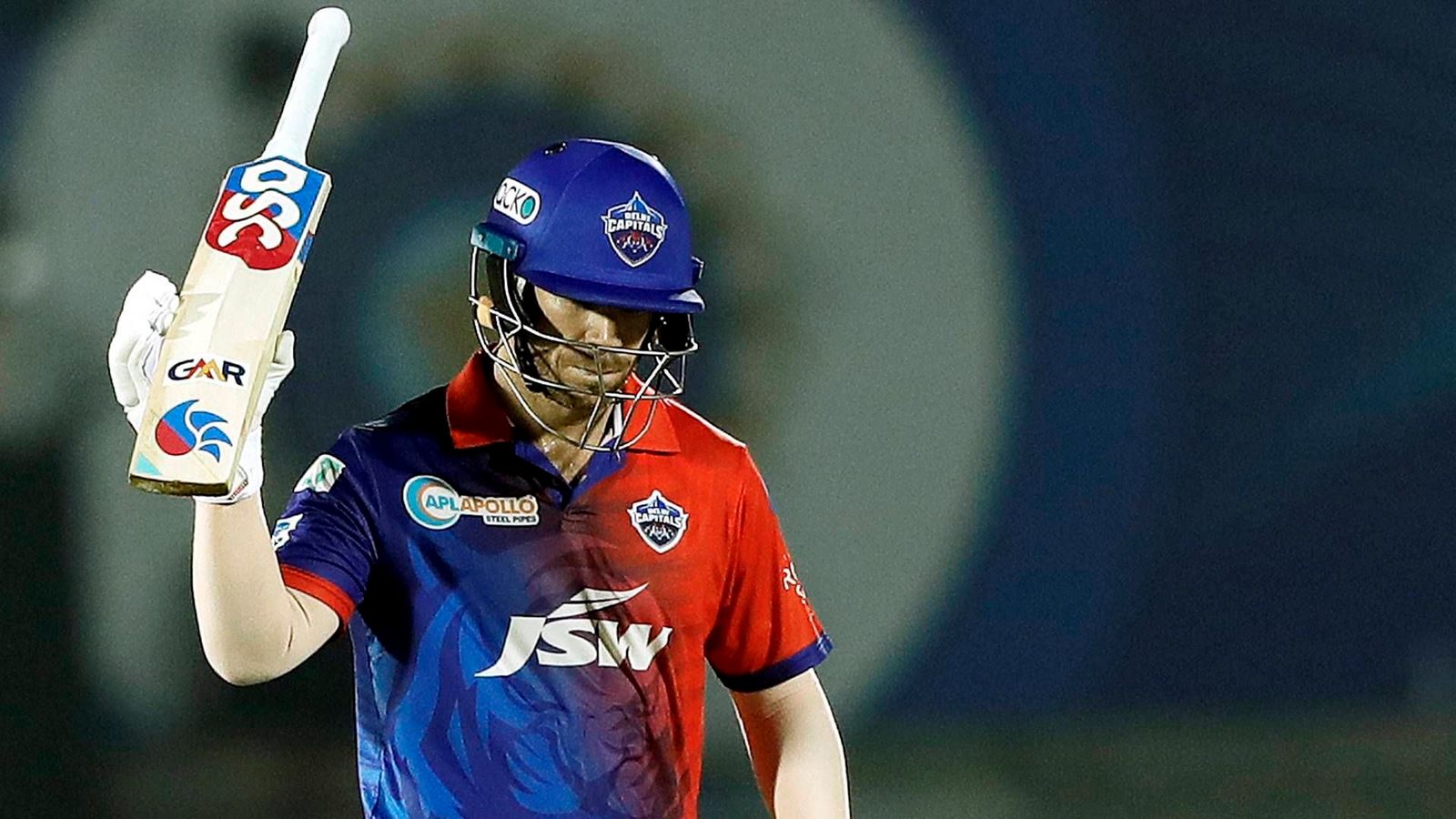Indian Premier League (IPL) veteran David Warner joined a rare list of batters with his unbeaten 60-run knock against Punjab Kings (PBKS) at Brabourne Stadium, Mumbai. Warner became the second batter after Mumbai Indians (MI) skipper Rohit Sharma to score 1,000 or more runs against an opponent.
Warner has 1,005 runs against PBKS whereas Rohit has 1,018 runs against Kolkata Knight Riders (KKR). Warner will have another record in sights when DC take on Kolkata Knight Riders (KKR) at Wankhede Stadium, Mumbai, on April 28. Former Royal Challengers Bangalore (RCB) skipper Virat Kohli is 51 runs away from achieving the feat against Chennai Super Kings (CSK).
Chasing a low score of 116, Warner scored 60 runs from 30 deliveries including 10 fours and one six. He shared an 83-run partnership with Prithvi Shaw. The duo dominated PBKS bowlers in the powerplay overs and scored 81 runs. This is the highest score in powerplay overs by Delhi-based franchise in the history of IPL. Also, it is the highest powerplay score of the ongoing season.
He finished the run chase with a boundary. DC chased down the total in the 11th over with 57 balls to spare. It is also the largest victory (in terms of balls remaining).
“I think the bowlers did a fantastic job and made it easier for us. We had to go hard in the powerplay during the chase. It was a different surface compared to the last night, but credit to our bowlers. Was grateful that we were able to get out of our rooms and play tonight. I was just trying to be positive and am happy to have played with Shaw,” the 35-year-old said.
“For me it's about sticking to the basics and I tried to put my best footwork forward, hopefully I'll be able to do going forward. My kids just want to know why I cannot get hundred like Jos (Buttler) does. It's great that the little ones around the world keep watching this game,” he added.
So far, from four games, he has scored 191 runs at an average of 63.67 including three half-centuries.


